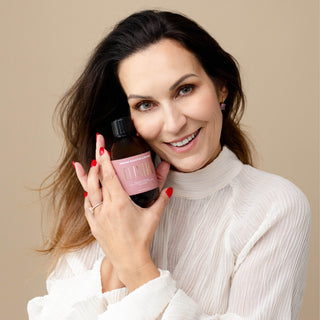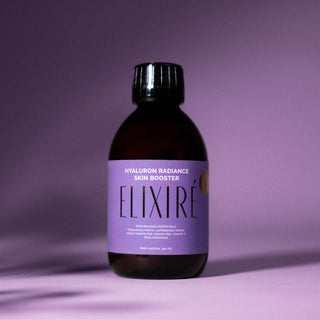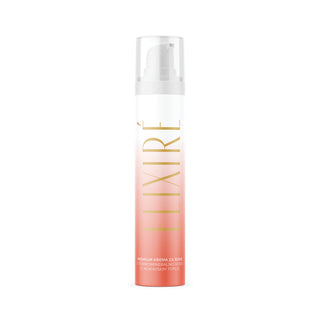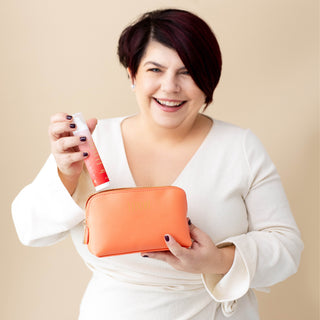Hair loss is a problem that affects many people - regardless of gender or age. At a time when stress, hormonal changes and a fast-paced lifestyle are becoming more common, hair loss is also becoming more prevalent. And if you too have ever watched with concern a pile of hair in the drain after a shower - you are not alone.
But don't worry - there are many ways to prevent excessive hair loss, stimulate hair growth and improve density. In this article, we present 10 proven tips that can help you have healthy, stronger and lush hair.
How much shedding is normal?
Experts say that 50 to 100 hair loss per day is completely normal. But if you start to notice that your hair is noticeably thinner or that your scalp is visible - this is a sign that something is going on.
The key questions are:
the scalp and areas around the forehead become more visible?
If the answer is yes, it is good to act in time. According to dermatologists, the most common causes are: hormonal changes (e.g. menopause), stress, diseases,[[t2002 ]] births and unbalanced nutrition. (1*)
10 effective tips against hair loss
1. Treat your hair gently
Use a soft brush, such as boar bristles, and avoid rough combing of wet hair. Hair is like fabric - with proper care, you can keep it beautiful for longer.
2. Limit heat and chemical treatments
High temperature during drying, ironing or curling weakens the hair structure. Use low to medium heat and limit dyeing and bleaching.
3. Take care of your scalp - it all comes from there
Healthy scalp = healthy growth. Use gentle sulfate-free shampoos and scalp care serums.
Recommended:
Elixiré Power Growth Hair Serum
Advanced serum with 4% AnaGain™ and 5 % Capixyl™, clinically proven:
– stimulates hair growth,
– increases density by +46%,
– reduces shedding up to -29%,
– restores microflora scalp.
Enriched with rosemary, birch sap, MSM and caffeine. Visible results in just 90 days!
4. Treat yourself to a scalp massage
Gently massage the scalp with your fingers for a few minutes every evening. This increases blood circulation and stimulates hair follicles to grow. (2*)
5.Eat foods rich in vitamins and minerals
Deficiency iron, vitamins B-complex, zinc [[t 5377]]and omega-3 can causes weakened hair. Add to diet whole foods or proven nutritional supplements. (3*)
Elixiré Hair Fusion capsules for hair, skin and nails give holistic support to the body from the inside out with a combination of vitamins, minerals and plant extracts.
6. Manage stress
Stress often triggers a condition called telogen effluvium – temporary hair loss. Relaxation techniques, yoga or nature walks can help balance. (2*)
7. Check hormones
Periods such as menopause or postpartum period often lead to hormonal fluctuations that affect the hair. (2*)
Consult your doctor if you suspect a hormonal imbalance.
8. Use targeted care against hair loss
Products with clinically supported ingredients such as are AnaGain™, Capixyl™,[[t7275] ] caffeine and MSM, proven to reduce hair loss and stimulate the growth of new, stronger hair.
Elixré Power Growth Serum contains all the key active ingredients that work directly on the hair follicles.
9. Avoid tight hairstyles
Permanent hairstyles (eg pigtails or braids) that pull on the hair can cause traction alopecia - gradual thinning in certain areas. (4*)
10. Don't delay - act on time
When you notice a change in hair density, act quickly. According to dermatologist dr. Schultz:
“It's easier to keep your hair than to get it back.”
Conclusion: Hair loss isn't the end of the world - it's the start of a new routine
With some patience, proper care and quality products, you can restore balance to your scalp and strengthen your hair. Your body reacts to internal and external influences - and you can help it return to shine with the right steps.
Literature: (*)
1. Source:
Telogen Effluvium: A Review., (S.
Malkud), https://europepmc.org/article/MED/26500992
2. Source: [[t9649]Telogen Effluvium, [[t9680](D. Liyanage, R. Sinclair), [[t9722][[t9777]
3. Source:
Chronic Telogen Effluvium: Is it a Distinct Condition? A Systematic Review, (A. Daunton, M. Harries, R. Sinclair, R. Paus, A. Tosti, A.Messenger),
https://link.springer.com/article/10.1007/s40257-023-00760-0
4. Source:
Telogen Effluvium, (B.Burroway, J. Griggs, M.A. Martinez-Velasco, A. Tosti),
https://link.springer.com/chapter/10.1007/978-3-030-21555-2_10









